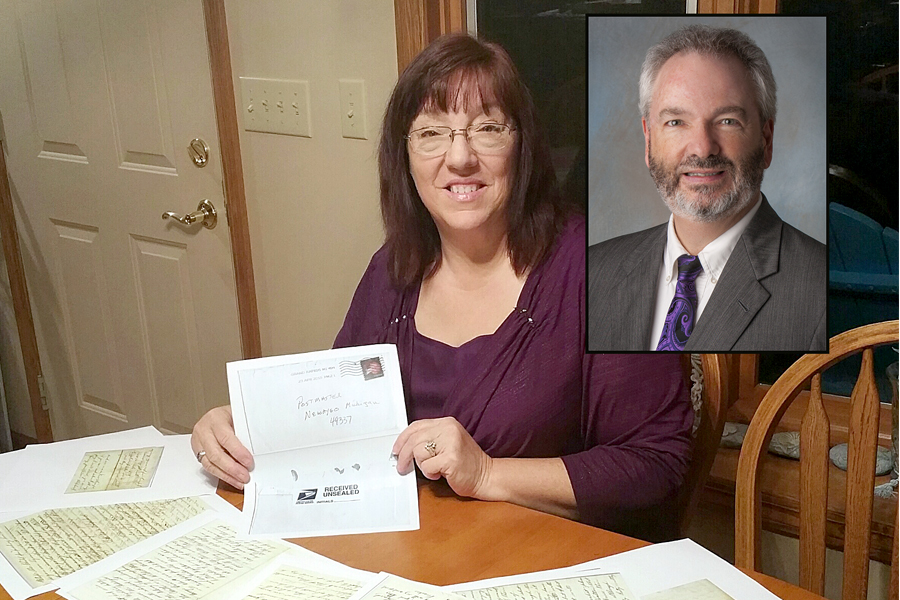A team of USPS employees has solved a puzzle surrounding Civil War-era letters that were mailed to a Michigan Post Office last year.
The mystery began when an envelope simply addressed “Postmaster, Newaygo, Michigan” arrived at that town’s office in April 2015.
Postmaster Lori Boes opened the envelope, which contained a smaller envelope with correspondence from a Union Army private named Nelson Shephard.
“Almost instantly, I knew it was something really special,” Boes said. “It took my breath away. I was shaking.”
The letters, written by Shephard to his family, provide insight into some major Civil War battles. The messages also tell the story of a homesick young man who would later die in a Confederate prison.
Boes showed the letters to her supervisor and district manager, who contacted Jennifer Lynch, the Postal Service’s historian. She worked with her office’s senior research analyst, Stephen Kochersperger, to authenticate the letters.
Kochersperger deciphered the handwriting, transcribed the messages and placed them in chronological order based on Shephard’s accounts, which were checked against historical records.
USPS donated the letters to the National Postal Museum in Washington, DC, where they will be displayed.
Boes is glad the letters have a home. “It does my heart good to know they are there,” she said.
It remains a mystery why the letters were mailed to her in the first place, but she hopes a new Smithsonian magazine article about the case will prompt the sender to come forward.
Kochersperger has his own theory.
“My hunch was someone in the family had these and didn’t know what to do with them,” he said. “People throw all sorts of valuable things into the mailbox because they trust the Post Office to get it to the right place.”
